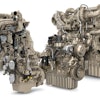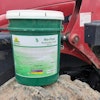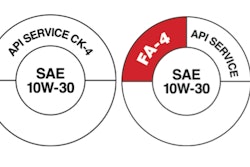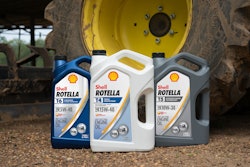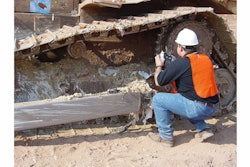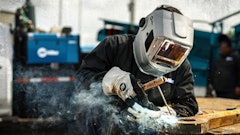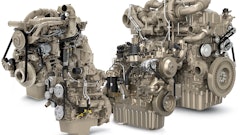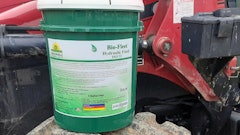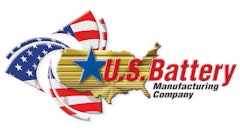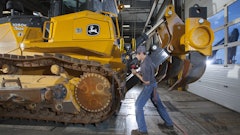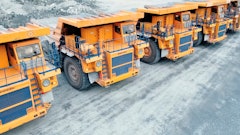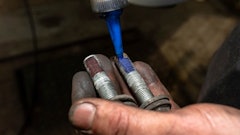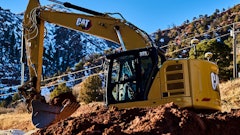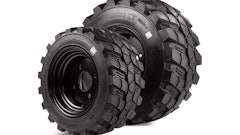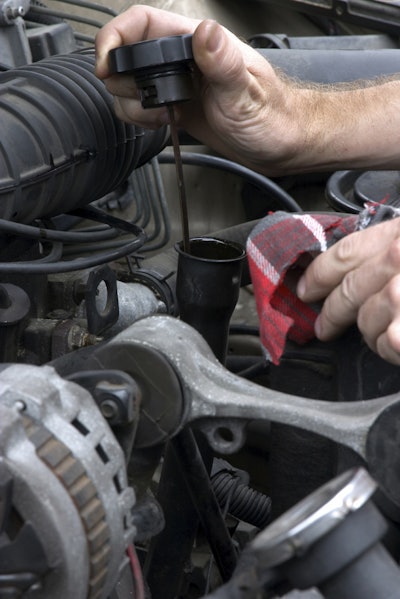
To help equipment owners and managers prepare for the the upcoming transition to PC-11 engine oil categories Chevron offers a weekly "ask an expert" Q&A series. The Chevron experts have already addressed several questions about the benefits and performance of the new oils which will be commercially available at the end of 2016.
Here is what the experts have shared so far.
What are the benefits of these PC-11 oils?
The principle goals of the new engine oil categories are to increase fuel efficiency and to help reduce CO2 emissions. However there are REAL performance upgrades that are being introduced as well. These new oils will deliver greater oxidation stability to meet the needs of hotter running engines, benefiting not only the new engines, but also existing engines that are running at very heavy duty cycles. The off-highway segment can really gain benefit from the use of these new CK-4 oils, which will deliver significantly improved oxidation stability.
What does the new PC-11 specifications mean for off-highway applications?
While off-highway market is not directly affected by the same regulations that are driving on-highway engine design changes, PC-11 has shown to have benefits that are applicable to the off-highway market. Oil aeration is a common problem with off-highway equipment, when air bubbles proliferate into the hydraulic or circulating system this can lead to foaming, cavitation and an increased oxidation rate. PC-11 oils are developed to provide improved resistance to oil aeration, in addition to enhancing shear stability and oxidation protection.
What is the difference between CK-4 and FA-4?
The primary difference in the two categories of PC-11 heavy duty oil is with backward compatibility. API CK-4 oils will support virtually all high-speed four stroke cycle diesel engines — including older engines that were using CJ-4, as well as new engines that are currently being developed. Use of API FA-4 oils will be OEM dependent and may not be suitable for use in older diesel engines. This category will focus on the next generation of diesel engines that are currently in development to deliver greater fuel efficiency.
Other differences include:
PC-11A (Licenses as API CK-4)
- Viscosity grades include both SAExW-40 and xW -30 engine oils with >3.5 cP HT/HS viscosity
- Higher level of wear and oxidation protection versus API CJ-4 oils
- Improved shear stability
PC-11B (Licenses as API FA-4)
- Improved fuel economy performance versus API CJ-4 oils
- Applies only to SAE 10W-30 and SAE 5W-30 viscosity grades that have are between HT/HS viscosity in the range of 2.9 to 3.2 cP
- Developed to deliver excellent engine parts protection even with thinner oil films
Are PC-11 oils expected to be more expensive to the customers?
There are a number of factors that can influence the price of oil, so it is difficult to generalize. One thing that we understand well is that most of our customers are running a business. Our objective is to understand how their fluid selection best integrates into their operation and how it can positively affect their bottom line. This includes selecting a product that meets the technical requirements of all of the hardware they utilize, as well as considering the potential advantages of longer maintenance interval and improved fuel efficiency.
What kind of engine damage will occur if the wrong oil type is used? Will one-time use damage the engine or will it happen over time?
Because API CK-4 will be backward compatible to previous licensable API categories, there will be no adverse effect from using these oils in older equipment. As always, it is important to confirm the viscosity grade(s) that the OEM recommends for a particular make, model and vintage. In some cases, there are restrictions on using lower viscosity grades (like SAE 10W-30) in some older engines.
The same is generally true for API FA-4 oils. We expect that OEMs will recommend it in a much more limited set of engines and applications, especially in the near term. In particular, we do not anticipate they will be recommended in off-highway applications. We expect OEMs to publish more specific guidance on the limitations or restrictions associated with these lower viscosity oils later in 2016, before they hit the market.
The impact of improper oil selection depends on a number of circumstances, but it is unlikely that a one-time use would cause immediate damage or failure. More commonly, use of oil with a lower viscosity than the engine was designed to use would cause a low oil pressure light, which in some cases triggers additional safeguards, including engine derate, to limit potential engine damage.
Prolonged use could lead to premature wear or engine failure. It is important to consult your owner’s manual for specific guidance related to the proper viscosity grade and performance specification that applies to your specific engine and vehicle.
When pulling heavy loads will this oil affect the performance?
Modern engines, as well as the specifications for the engine oils that lubricate them, are developed to address ever expanding customer needs, including the need to operate under sever-duty service which can place significant stress on the oil and demand that it stand up to high temperatures when operating conditions dictate. The new API CK-4 and FA-4 specifications build off today’s standards, requiring strong wear protection, deposit control, with even more stringent requirements for protection at high operating temperatures.
From that standpoint, you can be assured that the new oils will be even more robust to severe-duty operation. As always, consult your owner’s manual for oil recommendations consistent with your engine make/model and service severity.
How will these new oils perform in cold weather?
Although the new low viscosity products have been developed to improve engine and vehicle fuel economy, they also perform better at low temperature when compared to conventional SAE 15W-40 products. 10W and 5W heavy-duty engine oils must be pumpable and allow the engine to start at temperatures 5°C to 10°C colder than a 15W-40.
Better low temperature fluidity means that engine oil will travel faster upon start up to the lubricated components inside the engine contributing to better wear control and engine durability.
